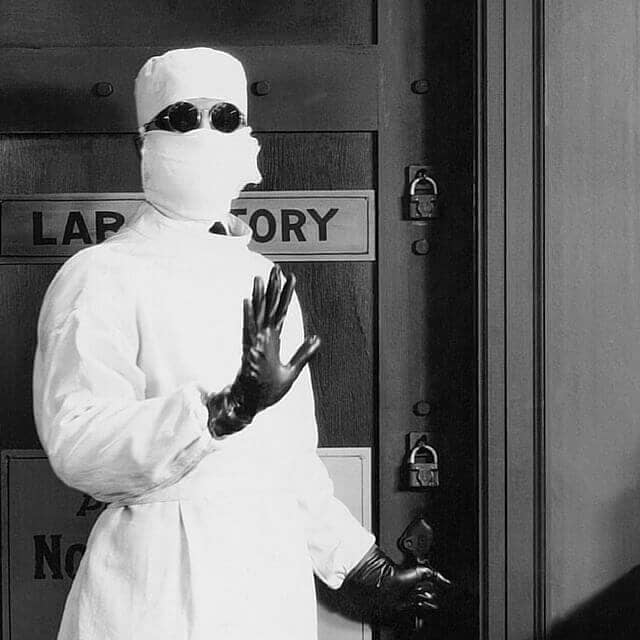Navigating Radioactive Relationships
I have a new theory about the radioactive nature of relationships.
A friend of mine recently shared about how his dad was dealing with an illness that could lead to death. He added, "Of course, he's been dying for years for other reasons. He works in nuclear science and everyone in his field is exposed to high levels of radiation on a regular basis."
I raised my eyebrows and asked, "And... that's just acceptable? Didn't he ever feel tempted to hustle out of there?"
What he said next provided a powerful metaphor for the nature of conflict.
My friend replied, "It all depends on what you classify as 'acceptable.' We're all exposed to radiation on a daily basis, but what is considered acceptable for you and I is way different than what's considered acceptable for people in his position. If you think about it, we're all dying - some just slower or faster than others."
"True, but morbid," I added.
He then summarized, "My dad and his co-workers took ownership for what they'd be facing when they took on their jobs. If something was too dangerous, they were cautious yet open to options. Even then, they were all generally determined to be faithful because of the vision to discover things in medicine and progress that would benefit the rest of us."
All of this feels like what we often experience relationally when we're growing up.
I've watched this in my oldest son.
As a young boy, he dealt with the "everyday issues" of playing with neighborhood kids. The conflicts he experienced usually involved a loud blow-up over a misunderstanding or some type of name-calling. These were intense, yet quickly resolved. By the next day, everyone was playing together again.
As a teenager, it seems like what his friends think or feel can affect him more personally over an extended period of time. It isn't anything that has swallowed him up, but I see its potential to infect him if he isn't aware of it. This only intensifies as we emerge into adulthood.
Certain ages or experiences foster hot-levels of "radiation" into our relationships, like a sunburn we feel the immediate effects of. Other circumstances cause more subtle-levels of "radiation" that we may only see the effects of over time.
Both are toxic, though, aren't they?
That is, unless we figure out some ways to define what is and isn't "acceptable" within our relationships and how we deal with conflicts and reconciliation, and help our kids and teenagers to do the same.
- Ownership: C.S. Lewis observed, "Everyone thinks forgiveness is a lovely idea, until they have something to forgive." Dr. Charles Stanley complemented, "Every rebuke is a chance to let your Christian character shine by showing love to your critic." Both thoughts recognize that somewhere along the way of figuring things out with another person we can twist the opportunity to better figure ourselves out. Who can't benefit from that?
- Hustle: It's common for us to say that we need time before we're ready to work things out with someone else, but often that leads to extended procrastination. Help your kids be the first one to apologize when they've offended another person or pursue reconciliation when someone has offended them.
- Faithfulness: There will be times when your kids or teens will run into a damaged relationship to do the right thing, only they'll end up feeling resistance on the other end. It'll be as if they're running in place with no real forward progress. Celebrate their efforts to be proactive by explaining, "When you forgive a little more than seems reasonable and comfortable, you just might actually be on the verge of actually forgiving. When you confess a little more than seems reasonable and comfortable, you just might be on the verge of actually confessing."
- Vision: Wounded kids tend to feel like their only option is to either withdraw or lash out. Both reactions just create real problems on top of the perceived problems. Remind them to reach up and try to churn out something more genuine. As Colossians 3:2 says, "Set your minds on things above, not on earthly things."
- Caution: Certain relationships or individuals may reveal themselves to be toxic to your children. While they may need to reasonably back away, teach them to do so facing the person or situation. Even when creating space, our goal is to be ready to reengage if and when things get healthier... just like the story of the Prodigal son and his father.
Like radiation, relational pain and tension can be received for a while... but will not be denied attention indefinitely. Something will eventually catch up to us,
The question remains - what do you consider "acceptable?"
Thoughts?







Pastor Tony,
I must say that I’ve been receiving and reading the amazing articles of Lifetree for awhile now and it wasn’t until recently that I actually looked for the author. The topic that you were writing about was addressed so well and I absolutely love how you share things about your family to help us grasp it more. Since that day of exploring authors, I now make a habit of it because I do not want to miss any of your teaching/sharing articles.
Well, I won’t keep you, but I just wanted to thank you and your family for what you are doing. I have no doubt that you are a busy man of God, but obviously GOD gave you many gifts and you are not sitting on them, but you are using them to advance HIS Kingdom.
Blessings,
Jenn
Jenn, thanks so much for this encouragement! Really thankful to hear that what is being put out there is serving you. Appreciate this comment so much!